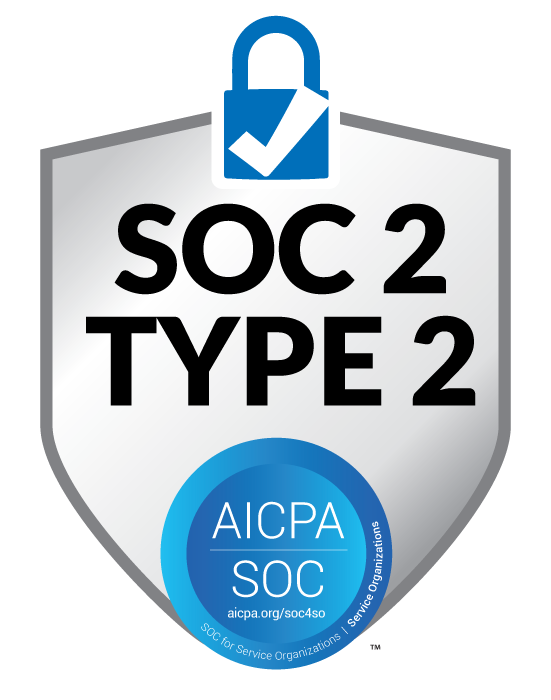Introduction
The sales landscape has undergone a dramatic transformation in recent years. Sales cycles are lengthening, often stretching from weeks to months due to economic uncertainties and increased scrutiny from buyers. More decision-makers are involved in purchases, with B2B deals now averaging 6-10 stakeholders per transaction. Buyers expect hyper-personalized experiences, demanding solutions tailored to their unique pain points and backed by data-driven insights. In this high-stakes environment, sales teams are under pressure to deliver more with less, balancing efficiency with effectiveness to drive revenue growth.
Enter AI, which has evolved from a novelty to a necessity in sales operations. But not just any AI—agentic AI is emerging as the game-changer. Unlike basic automation tools, agentic AI empowers sales teams with autonomous, intelligent systems that act proactively to streamline workflows and enhance decision-making. Research suggests that teams adopting agentic AI sales strategies can see up to 30% improvements in productivity, making it indispensable for staying competitive. It seems likely that as buyer expectations continue to rise, agentic AI will become the backbone of successful sales automation AI initiatives, helping teams navigate complexity while focusing on high-value human interactions.
This blog explores how leading sales teams are integrating agentic AI to boost efficiency, personalization, and revenue. We’ll delve into its definitions, applications, real-world examples, benefits, challenges, and future potential, providing strategic insights for sales leaders and CROs.
What Is Agentic AI in Sales?
Agentic AI refers to advanced artificial intelligence systems designed to operate autonomously, pursuing complex goals with minimal human supervision. In the context of sales, agentic AI acts as a proactive partner, capable of multi-step reasoning, decision-making, and executing actions across tools and platforms. For instance, it can analyze customer data, plan outreach strategies, and even adjust tactics in real-time based on responses.
What sets agentic AI apart from traditional AI tools? Traditional AI, such as simple chatbots or lead scoring algorithms, is typically reactive—responding to inputs without independent initiative. Chatbots might handle basic queries, while lead scoring assigns values based on predefined rules. In contrast, agentic AI is goal-oriented and adaptive, handling dynamic scenarios like negotiating deals or rerouting leads based on emerging insights. Its unique abilities include autonomy (operating without constant oversight), multi-step reasoning (breaking down complex tasks), and proactive actions (anticipating needs and acting accordingly)
To illustrate the differences, here’s a comparison table:
| Aspect | Traditional AI Tools | Agentic AI in Sales |
|---|---|---|
| Core Function | Reactive responses and basic analysis | Autonomous planning and execution |
| Autonomy Level | Low; requires human prompts | High; self-directed with goals |
| Task Complexity | Simple, single-step (e.g., scoring leads) | Multi-step (e.g., qualifying, personalizing, forecasting) |
| Adaptability | Rule-based, static | Dynamic, learns from interactions |
| Sales Impact | Efficiency in routine tasks | Revenue growth through proactive insights |
This table highlights why agentic AI sales teams are gaining an edge—it’s not just about automation; it’s about intelligent, adaptive support that scales with business needs.
How Top Sales Teams Are Using Agentic AI
Successful sales teams are leveraging agentic AI across the sales funnel to enhance performance. Here’s how:
Lead Qualification & Prioritization
Agentic AI agents excel at scoring and routing leads by analyzing vast datasets in real-time. For example, they can evaluate prospect behavior, firmographics, and engagement signals to prioritize high-potential leads, ensuring reps focus on those most likely to convert.
Personalization at Scale
Sales personalization AI powered by agentic systems crafts tailored outreach emails, drawing from customer context, past interactions, and market trends. This allows for hyper-relevant messaging without manual effort, boosting response rates.
Meeting Preparation
Before calls, agentic AI summarizes account insights, performs competitor analysis, and generates talking points. This prep work saves hours, enabling reps to enter meetings informed and confident.
CRM Hygiene
Maintaining clean data is a perennial challenge, but agentic AI automates updates, logs calls, and detects gaps in records. Integration with tools like Salesforce ensures accuracy and compliance.
Forecasting & Pipeline Management
Agentic AI surfaces risks and opportunities by analyzing pipeline data, predicting outcomes, and recommending actions. This real-time insight helps teams adjust strategies proactively.
Case Study Examples
Real-world applications demonstrate agentic AI’s impact. A SaaS company like ThoughtSpot uses agentic AI for outbound personalization, where agents analyze prospect data to craft custom emails, resulting in a 25% increase in response rates and shorter sales cycles. In another example, an enterprise sales team at a firm similar to IBM automates pipeline updates with agentic AI, logging interactions and flagging stalled deals automatically. This reduced admin time by 40% and improved win rates by identifying at-risk opportunities early.
Warmly AI provides a case where sales agent AI handles lead qualification, leading to 3x faster conversions and higher revenue. Tangible outcomes across these cases include shorter cycles (up to 30% reduction), higher win rates (15-20% uplift), and reduced admin load, allowing reps to focus on relationship-building.
Benefits of Embracing Agentic AI
The evidence leans toward significant advantages for AI sales teams adopting agentic systems:
- Efficiency: Automates repetitive tasks, freeing up to 50% more time for selling. This means less admin work and more strategic focus.
- Accuracy: Minimizes data errors with automated CRM updates, ensuring cleaner pipelines and reliable forecasting.
- Scalability: Enables personalized outreach at enterprise levels, handling thousands of interactions without proportional resource increases.
- Insights: Provides real-time coaching and deal health analysis, empowering reps with actionable intelligence to close deals faster.
Overall, these benefits contribute to revenue growth, with studies showing up to 38% boosts in sales.
Challenges & Considerations
While promising, adopting agentic AI isn’t without hurdles. Trust and transparency are key concerns—sales teams may hesitate to rely on AI-driven recommendations without clear explanations of decision processes. Integration with existing tools like Salesforce, HubSpot, or Gong can be complex, requiring seamless APIs to avoid silos.
Change management is crucial; shifting sales culture toward AI adoption demands training and buy-in to prevent resistance. Data privacy and compliance, especially under regulations like GDPR, must be prioritized to protect sensitive customer information in sales workflows. Addressing these thoughtfully can mitigate risks and maximize value.
The Road Ahead
Agentic AI in sales is poised for rapid evolution. Future developments may include autonomous deal desks that handle negotiations end-to-end and AI co-pilots that simulate scenarios during live calls. By 2029, it’s estimated that agentic AI will resolve 80% of routine tasks autonomously, transforming sales automation AI.
Teams that adopt early will gain a competitive advantage, outpacing rivals in efficiency and innovation. As the technology matures, expect broader integration across ecosystems, making sales more predictive and human-centric.
Conclusion
Agentic AI holds transformative potential for sales teams, enabling them to navigate longer cycles, engage more stakeholders, and meet elevated buyer expectations with unprecedented efficiency and personalization. By automating the mundane and amplifying human strengths, it drives sustainable revenue growth.
Sales leaders, now is the time to act. Explore solutions like lowtouch.ai for building sales-specific AI agents that integrate securely and scale effortlessly. Start your journey toward agentic AI sales success today—visit lowtouch.ai to learn more.
About the Author

Rajagopal Nair
Co-founder & COO, lowtouch.ai
With extensive experience in the tech industry, Rajagopal has held senior leadership roles at several top-tier organizations, including IBM. He brings deep expertise in Cloud and AI innovation and is passionate about accelerating enterprise AI adoption.
As the Co-founder and COO of lowtouch.ai, Rajagopal is leading the development of a no-code, private agentic AI platform built to automate workflows, enhance customer experiences, and optimize IT operations—while prioritizing data privacy and security. His mission is to help businesses unlock the full potential of AI through seamless, scalable, and secure solutions tailored to their needs.




